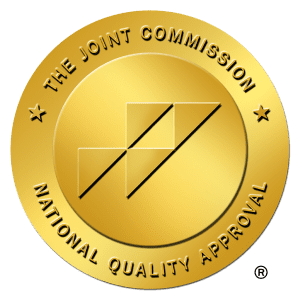
High-functioning alcoholism is a complex and often misunderstood form of alcohol use disorder that can hide behind a veneer of professional and personal success. Unlike the stereotypical image of an alcoholic, individuals with high-functioning alcoholism often maintain steady employment, fulfill family responsibilities, and project an appearance of normalcy to the outside world. According to the National Institute on Alcohol Abuse and Alcoholism (NIAAA), an estimated 20% of alcoholics are considered “functional” or “high-functioning”, yet many go undiagnosed and untreated due to their ability to maintain outward appearances of success.
What is High-Functioning Alcoholism?
High-functioning alcoholism, also known as functional alcoholism, is a colloquial term for a pattern of alcohol dependency where the individual appears to lead a normal life despite their problematic alcohol consumption. While not an official medical diagnosis, this term describes people who struggle with alcohol addiction while seemingly managing their daily responsibilities.
Research published in the Journal of Substance Abuse Treatment indicates that high-functioning alcoholics often have higher education levels and incomes compared to other subtypes of alcohol use disorder, with approximately 19.5% of individuals with alcohol dependence maintaining stable jobs and relationships.
The key distinction between high-functioning alcoholics and non-high-functioning alcoholics often comes down to their ability to maintain a facade of control. They may excel professionally, maintain relationships, and fulfill obligations despite their unhealthy relationship with alcohol. However, beneath this semblance of normalcy lies a dangerous dependency that eventually takes its toll.
Common Signs of High-Functioning Alcoholism
Recognizing high-functioning alcoholism can be challenging precisely because these individuals work hard to conceal their drinking habits. According to a study published in Alcoholism: Clinical and Experimental Research, approximately 72% of high-functioning alcoholics never seek treatment despite experiencing symptoms that meet the criteria for alcohol use disorder. However, certain warning signs may indicate someone is struggling:
Drinking Patterns and Behaviors
- Regular drinking that exceeds moderate alcohol guidelines (more than 1-2 drinks per day)
- Using alcohol for confidence in social gatherings or as stress management
- Binge drinking during weekends or at inappropriate times
- Maintaining a high tolerance for alcohol (needing more to feel the effects)
- Experiencing withdrawal symptoms when not drinking
- Unsuccessful attempts to control or cut back on alcohol intake
- Drinking alone or hiding evidence of alcohol consumption
Professional and Personal Life Indicators
- Creating elaborate excuses for drinking-related behavior
- Memory lapses or blackouts after drinking episodes
- Living a “double life” where drinking is compartmentalized
- Joking about having an “alcohol problem” while deflecting genuine concern
- Using alcohol as a reward for accomplishments or to cope with stress
- Becoming irritable when drinking isn’t possible
A survey by the Substance Abuse and Mental Health Services Administration (SAMHSA) found that approximately 14.5 million adults aged 18 and older had an alcohol use disorder, yet only about 7.2% of those with the condition received treatment in the past year.

The Physical and Psychological Impact
While high-functioning alcoholics may temporarily avoid some external consequences of their addiction, the physical health and psychological impacts accumulate over time:
Physical Consequences
High-functioning alcoholism can lead to severe health issues, including:
- Liver damage and potential liver disease
- Elevated blood pressure and cardiovascular problems
- Compromised immune system
- Disrupted sleep patterns despite appearing to get adequate sleep
- Gastrointestinal issues
- Increased risk of certain cancers
According to the World Health Organization (WHO), alcohol consumption contributes to 3 million deaths each year globally and is a causal factor in more than 200 diseases and injury conditions.
Psychological Effects
The psychological distress associated with maintaining a functional alcoholic lifestyle includes:
- Anxiety & depression as co-occurring mental health disorders
- Unexplained mood swings
- Emotional distance in relationships
- Shame and guilt about drinking habits
- Mental fog and difficulty concentrating
- Increasing dependency on alcohol to manage emotional issues
Why High-Functioning Alcoholics Avoid Treatment
There are several reasons why highly-functioning alcoholics resist seeking help:
- Denial reinforced by professional success and meeting responsibilities
- The absence of obvious signs of alcoholism according to societal stereotypes
- Fear of stigma, especially in professional circles where reputation matters
- Societal pressures and cultural norms that normalize excessive drinking
- Belief that maintaining control in other areas of life proves there isn’t a “real problem”
Breaking Through the Facade: Treatment Approaches
Recovery from alcohol addiction for high-functioning individuals often requires specialized approaches that address their unique circumstances:
Initial Steps Toward Recovery
- Professional intervention that acknowledges their achievements while addressing concerns
- Comprehensive assessment by medical professionals to determine the appropriate level of care
- Creating safe spaces for honest discussion about their relationship with alcohol
The National Institute on Drug Abuse (NIDA) reports that treatment success rates for substance use disorders are comparable to those of other chronic conditions like diabetes and hypertension, with 40-60% of patients maintaining recovery after treatment.
Effective Treatment Interventions
Grata House in Ventura County offers comprehensive treatment programs specifically designed for high-functioning individuals struggling with alcohol dependency:
- Individual therapy addressing the underlying issues behind alcohol use
- Family therapy to repair strained relationships damaged by addiction
- Cognitive-behavioral therapy to change drinking patterns
- Medication-assisted treatment when appropriate
- Holistic treatments including physical activity and nutrition counseling
- Building healthy routines to replace alcohol-centered activities
According to SAMHSA’s National Survey on Drug Use and Health, individuals who receive a combination of medication and behavioral therapies show significantly higher recovery rates than those who receive only one type of treatment.
The Crucial Role of Aftercare
For successful recovery, ongoing support is essential:
- Outpatient programs that accommodate professional responsibilities
- Developing stress management techniques that don’t involve alcohol
- Rebuilding social relationships in environments that don’t center around drinking
- Addressing any co-occurring mental health conditions such as bipolar disorder or anxiety
- Establishing ongoing therapy sessions to maintain progress
Taking the First Step
If you recognize these signs in yourself or someone you care about, reaching out for professional help is the crucial first step toward recovery. At Grata House in Ventura County, our compassionate team understands the complexities of high-functioning alcoholism and offers a supportive environment for healing.
Our residential treatment program provides the tools and support needed to address alcohol dependency while respecting the unique circumstances of high-functioning individuals. By acknowledging the problem and seeking help, you’re taking control of your relationship with alcohol rather than allowing it to control you.
Contact our admissions team to learn more about our treatment approach and how we can support your journey to recovery. At Grata, “sober” is just the beginning of your greatest adventure yet.
